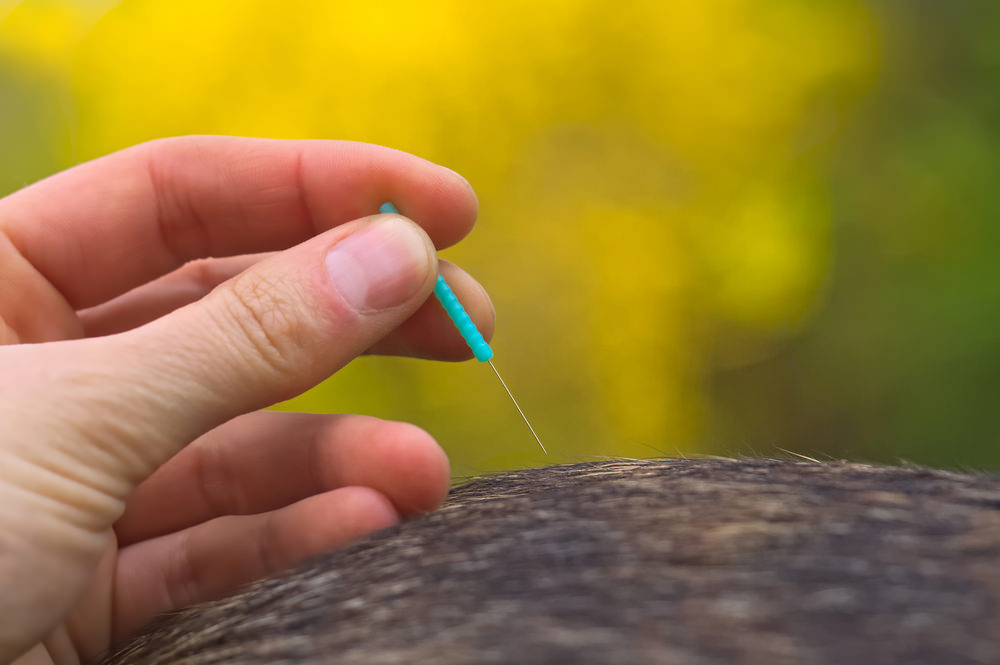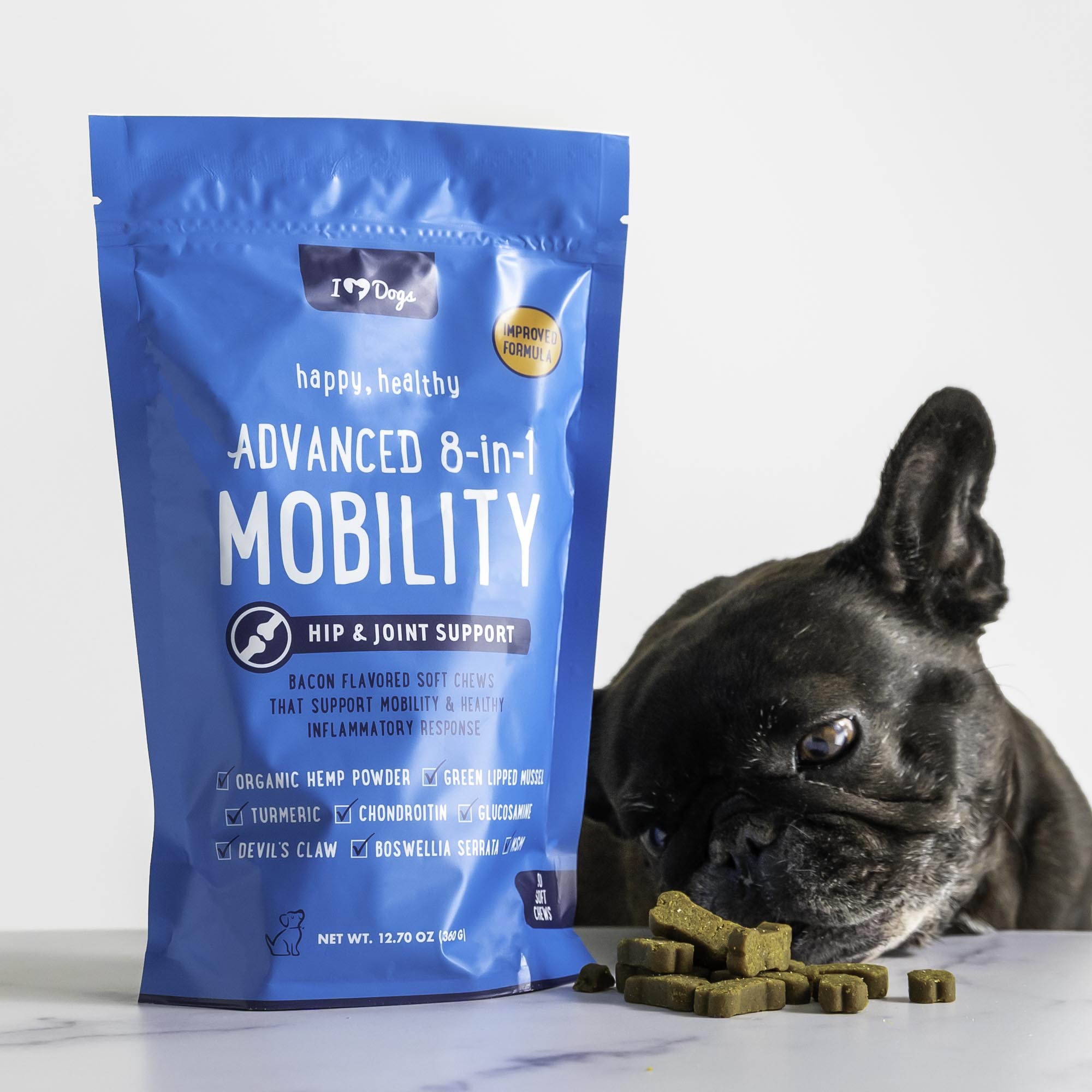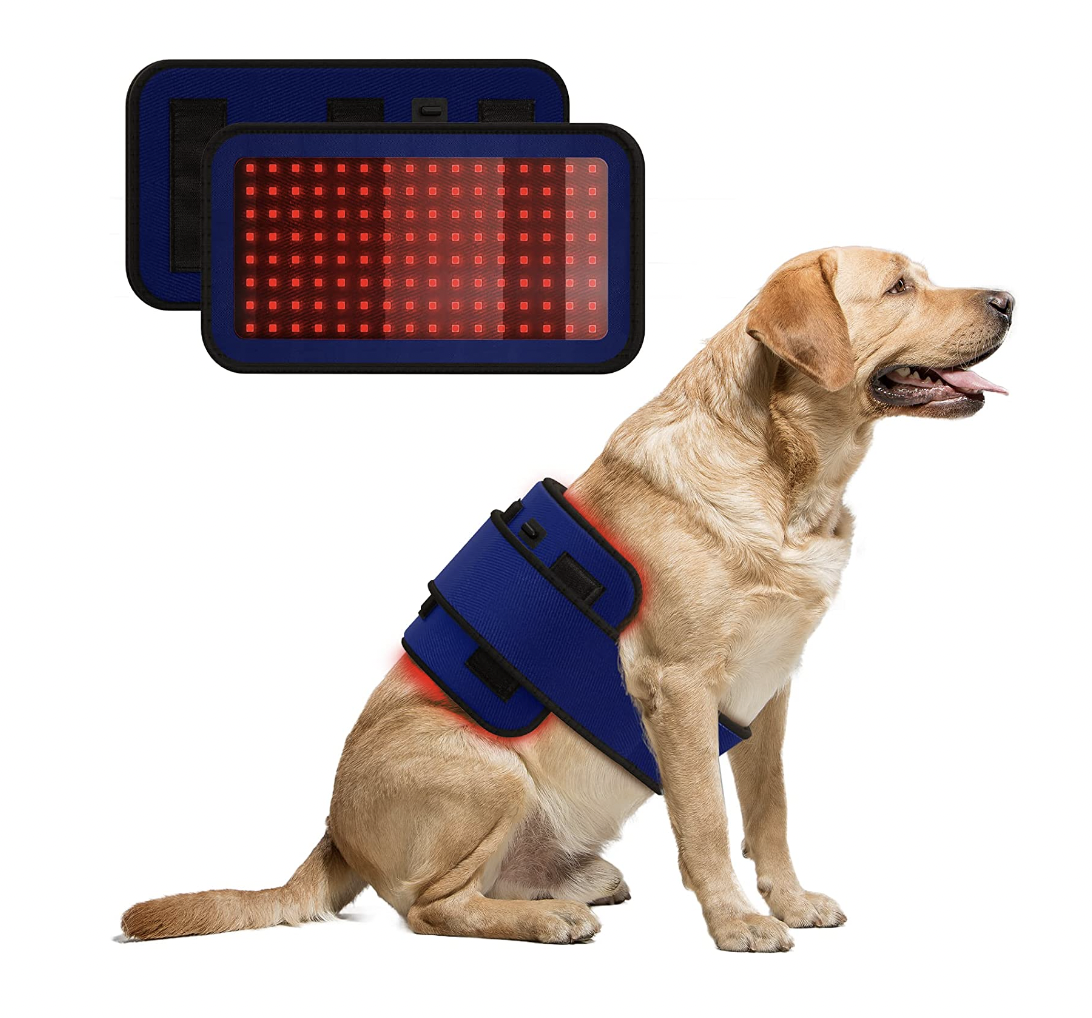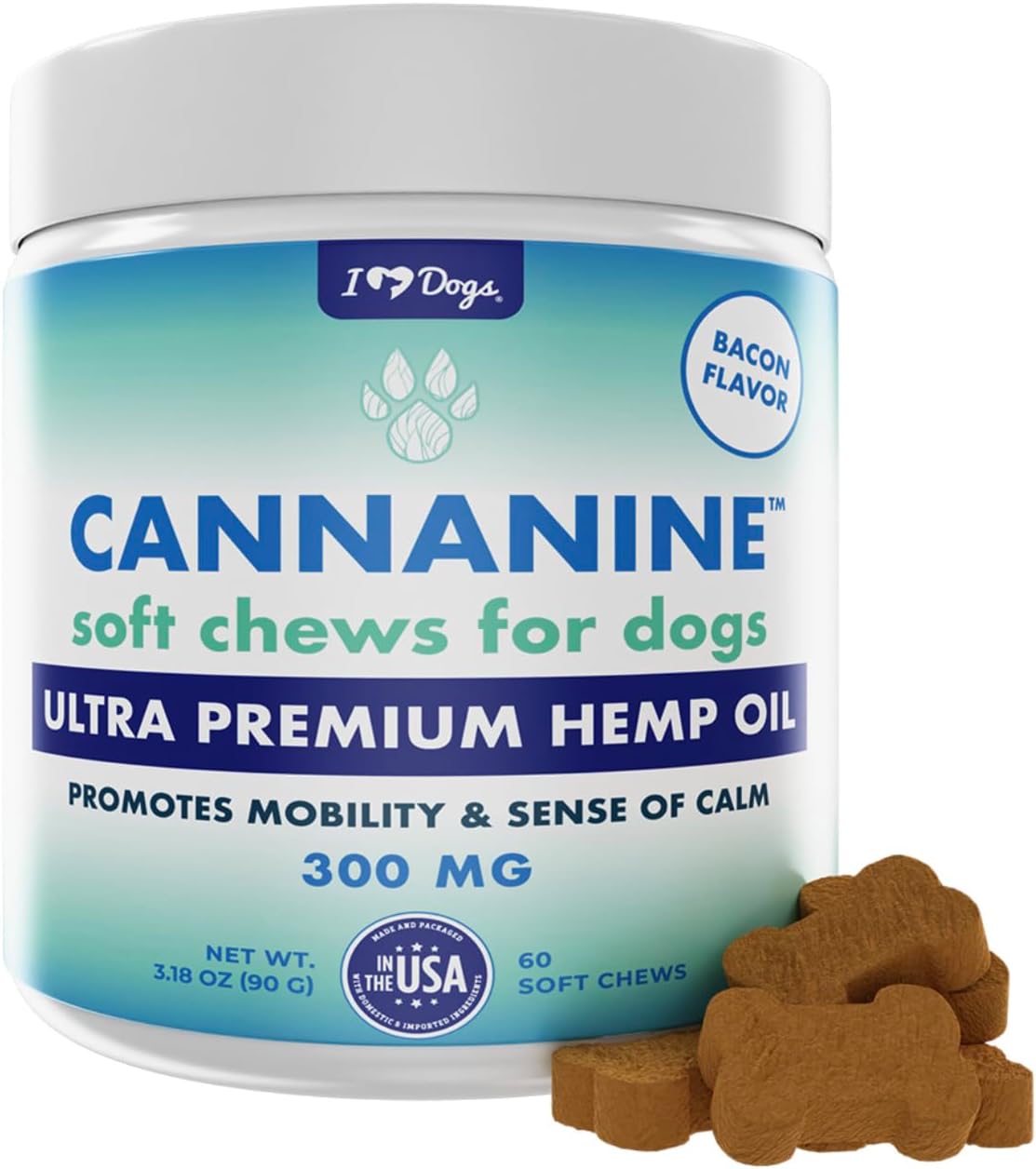
Treatments For Arthritis, Hip & Leg Problems
It’s excruciating to see your Shih Tzu in pain. When you take a pet into your home you promise to love and care for it the best you can for as long as you can, but arthritis and joint pain can strike at any time and leave you feeling helpless.
Prescription NSAID pain relievers certainly have their place, but they can be tough on your Shih Tzu’s liver and steroids come with a host of side effects. Luckily there are natural steps you can take to keep your dog comfortable.
Here are 10 drug-free ways to help your dog live pain-free. Be sure to consult your veterinarian before making any major changes to your dog’s diet, exercise or medication routine.
1. Maintain A Healthy Weight
The more extra weight your dog carries, the more strain his or her joints suffer. If your dog is overweight or obese, now is the time to start a weight loss regimen. If your arthritic dog is already at a healthy weight, be sure to maintain it with a healthy diet and gentle exercise.
2. Keep Moving
If your dog is diagnosed with arthritis you will definitely want to revamp his or her exercise routine, but staying active is important for joint health. Instead of long, vigorous walks or strenuous play sessions, try frequent shorter walks and short play sessions indoors on soft carpet.
Related: 12 Best Dog Breath Fresheners
3. Add Anti-Inflammatory Foods to Your Dog’s Diet
Certain foods are said to have natural anti-inflammatory properties. If your veterinarian feels it is safe, you can try adding papaya, alfalfa, celery, or ginger to your dog’s diet. Another ingredient that has become very popular in recent years is turmeric for dogs, which has been shown to have incredibly strong anti-inflammatory effects.
4. Canine Acupuncture
It may seem shocking that a dog would tolerate dozens of needles being placed into his or her body, but the acupuncture trend has become quite popular in the animal world and has shown promising results for many common canine ailments, including joint pain.

5. Physical Therapy
Many veterinary hospitals and specialty centers now offer advanced services for dogs with injuries, arthritis and mobility issues. Highly trained staff members can help keep your dog’s pain at bay with techniques like hydrotherapy. They can also teach you how to provide physical therapy at home.
6. Laser Therapy
One of the newer innovations in reducing inflammation and pain in pets is low-level laser therapy. Your veterinarian will create a schedule of treatments based on your dog’s individual needs. The treatments are easy, painless and relatively quick. You can read more about the best red light therapy devices for dogs here.
7. Massage Therapy
The same massage techniques that help relieve your stiff muscles and aching joints can also benefit your arthritic pup. Many human massage therapists also work on pets and holistic veterinarians often offer this service to their clients.
8. Prevent Slipping
Hard wood and tile floors can be like mine fields for arthritic pets. Try laying down a series of throw rugs and runners to help your dog navigate the house. Keep toenails trimmed and consider friction socks to prevent slipping.
9. Provide A Supportive Orthopedic Dog Bed
An unsupportive mattress can wreak havoc on sore joints. Be sure your dog’s bed is designed for pups with arthritis. You can review our roundup of the best orthopedic beds for dogs here.

10. Supplements
Not all canine joint supplements are created equal. Many products only contain one active ingredient (glucosamine being the most popular) while others contain more than one. For example, this 8-in-1 canine joint supplement contains not just glucosamine, but also turmeric, green lipped mussel, MSM, chondroitin, devil’s claw, and more. It’s important to choose a joint health supplement that offers the correct therapeutic dosage for your Shih Tzu’s needs and is made from the highest quality ingredients.
To learn more about the 8-in-1 Canine Joint Supplement, visit here.

11. Hemp Extract Supplements
In last last 5 years, many studies have been done on the effectiveness of full and broad spectrum hemp oil in relieving support an arthritic dog’s mobility. Here at iHeartDogs, we use and recommend that Cannanine brand of hemp chews available on Amazon.
Frequently Asked Questions:
Do Shih Tzus Need Hip And Joint Supplements?
From puppyhood until early adulthood, younger Shih Tzus, up to about 5 years old, that are eating high-quality dry kibble, are at a healthy weight, and have a clean bill of health from the vet may not need supplemental nutrients. Older pups need supplements as they are much more likely to suffer from osteoarthritis. It’s a painful and chronic illness that can be prevented with joint supplements if started early enough.
Any Shih Tzu with a history of bone or joint problems, such as patella luxation, elbow or hip dysplasia, compressed trachea, or fractured or sprained bones. These problems, regardless of the dog’s age, are significantly connected with the development of post-traumatic arthritis. Joint inflammation, stiffness, and cartilage degeneration result from decreasing quantities of these naturally occurring chemicals. Reduced mobility, changes in behavior, and mild to severe pain are among the symptoms.
What Supplements Are Good For Shih Tzus Arthritis?
Shih Tzus need glucosamine and chondroitin to help add lubricant to their joints and, aid in cartilage restoration, joint maintenance, and promote tissue fortification. CoQ10, or Coenzyme Q10, is the third compound added to joint supplements for geriatric dogs or those with preexisting difficulties. It’s capable of slowing cartilage degeneration and alleviating inflammation. Next, Methylsulfonylmethane or MSM has similar benefits as glucosamine, it can help reduce the deterioration of cartilage and lessen inflammation.
Buy a supplement made specifically for dogs with joint problems and arthritis, like the Mobility-Improving Cannanine Advanced 9-in-1 Hip & Joint Chews with Broad Spectrum Hemp – 90 Count. In addition to relieving inflammation and stiffness, the award-winning broad-spectrum hemp extract in our Advanced 9-in-1 Hip & Joint Hemp Chews provides a wealth of other health benefits.
Broad-spectrum, potent hemp extract for natural pain treatment.
What Can I Give My Shih Tzu For Joint Pain & Arthritis?
You should include anti-inflammatory foods in your dog’s diet, as they can
help reduce inflammation just by eating them. Add papaya, alfalfa, celery, or ginger to your dog’s diet if your vet says it is okay to do so can help to reduce inflammations that worsen joint pain. In addition, turmeric, which has been demonstrated to have extremely potent anti-inflammatory benefits, is another substance that has gained a lot of attention in recent years.
As iHeartDogs loves canines, we created a supplement ready to help your dogs enjoy life pain-free with natural ingredients. In addition to glucosamine, turmeric, green-lipped mussel, MSM, chondroitin, devil’s claw, and several other ingredients make up this Advanced 8-in-1 Hip & Joint Chews for Mobility supplement. The best joint health supplement for your Shih Tzu will be formulated with the highest quality ingredients and provide your dog with the therapeutic dosage it requires.
Is Cosequin Or Dasuquin Better For A Shih Tzu?
Both Cosequin and Dasuquin include the active ingredients necessary to treat hip and joint problems, which are more prevalent in smaller breeds of dogs like Shih Tzus. Both of these nutritional supplements contain glucosamine and sodium chondroitin sulfate, two substances essential for maintaining healthy joints. Omega-3 fatty acids are essential for the body to function properly, and the sole supplement that provides them is Cosequin. Dasuquin contains a chemical naturally found in avocado and soybean oils and is known as avocado/soybean unsaponifiable (ASU). Both options are effective for larger dogs; thus, the only way to know for certain which one is best for your dog is to try out both options or to seek the counsel of your veterinarian.
Do Small Dog Breeds Need Joint Supplements?
It is especially important for little dogs to take supplements as they age since they are more likely to develop joint problems. Supplements can assist small dogs in avoiding joint injury. There is a possibility that smaller dogs require joint supplements even more than larger dogs do because of the added strain that is placed on their joints when they move around. Little canines are at a disadvantage in a world designed for large people. Even though they are relatively small, cats have joints that are specifically developed for jumping on virtually anything in any environment. This gives them an advantage.
Do Vets Recommend Joint Supplements For Shih Tzus?
Certainly, veterinarians recommend the usage of glucosamine for dogs with joint problems. Because it is something that occurs naturally within the body, the vast majority of canines do not suffer from any harmful effects, making this supplement completely safe.
Is There A Natural Remedy For Shih Tzus Arthritis?
Natural therapies, such as glucosamine, fish oil, and turmeric, can help dogs with arthritis before resorting to prescription medicines. Comfrey is another option that has been demonstrated to effectively reduce inflammation and pain. If your Shih Tzu is experiencing inflammation or digestive problems, you could also try yucca. Also, it is loaded with the vitamins and minerals your dog needs. Lastly, omega-3 fatty acids may help reduce inflammation.
Your dog’s arthritis can be treated with cannabidiol (CBD), a substance found in medical marijuana. Besides pain, CBD has shown promise in the treatment of seizures, anxiety, and even cancer. In addition, CBD’s pain-relieving anti-inflammatory qualities are a welcome bonus. When administered twice daily at the proper dosage, CBD has been shown to improve canine comfort and activity.
Can Glucosamine Cause Liver Damage In Shih Tzus?
Very uncommon adverse events have been reported with even extremely high dosages of glucosamine. Look for glucosamine supplements made from natural sources rather than synthetic ones if you want your dog to get the most out of them. It is possible that artificial supplements are not as helpful as getting your nutrients the natural way.
What Does Coconut Oil Do For Shih Tzus Joints?
Coconut oil has been touted for a long time as a fantastic natural remedy for reducing inflammation. Yet, recent studies have shown that coconut oil can cause inflammation and intestinal permeability. No matter how much your dog takes, it could make their stomach unhappy and lead to diarrhea, loose stools, and stomach lining irritation.
Are Fish Oil Supplements Good For Shih Tzus Arthritis?
Omega-3 fatty acids are effective in the treatment of canine arthritis and chronic kidney disease. Fish oils may be beneficial for your dog’s health, but before adding them as a supplement to his diet, you should talk to your physician. Just like humans, canines need a diet rich in omega-3, -6, and -9 fatty acids. Dog food increasingly includes fish, the finest source of omega-3s.
Is It Too Late To Give My Shih Tzu Joint Supplements?
Consider giving your Shih Tzu a joint supplement as soon as her body stops growing at about a year. Arthritis, hip, and elbow dysplasia, and general joint inflammation tend to manifest themselves earlier and more severely in smaller dog breeds. These issues are not exclusive to older dogs but can affect any dog at any age. Yet, glucosamine supplements may not be necessary for some breeds until later in life. If your pet is older than a year, you may want to discuss joint supplementation with your veterinarian.
What Are The Signs Of Hip Dysplasia In Shih Tzus?
Its typical clinical manifestations are a lack of strength or soreness in the rear legs. Hip dysplasia could be the culprit if your pup seems unsteady on her feet and hesitant to get up from a seated or reclining position. Other signs include:
Restrictive motion range
Unable or unwilling to engage in regular physical activity
Refuse to sprint or jump
Backend numbness
Swaying
Bunny walk
Shoulder muscle development is clearly visible.
How Can I Prevent My Shih Tzu From Getting Arthritis?
With the prevalence of joint-related health problems, your Shih Tzu might benefit from a joint supplement to help strengthen and protect their joints. Providing a healthy diet for your dog is another crucial step toward preventing or delaying the development of joint degradation. Keep in mind that dogs suffering from arthritis or joint pain are more likely to put on weight. Also, early diagnosis is crucial for an effective treatment of arthritis.
- Best Joint Supplement for Dogs
- Best CBD Gummies for Dogs
- Goat's Milk for Dogs
- Skin & Coat Supplements for Dogs
- Weight Gain Supplements for Dogs
- Muscle Building Supplements for Dogs
- Heart Supplements for Dogs
- Multivitamins for Dogs
- Pill Pockets for Dogs
- Digestive Enzymes for Dogs
- Turmeric for Dogs
- Liver Supplements for Dogs
- Tear Stain Supplement for Dogs
- Breath Fresheners for Dogs
- Kidney, Urinary, & Bladder Supplements for Dogs
- Stool Eating Deterrent for Dogs
- Eye Supplements for Dogs
- Melatonin for Dogs
- Apple Cider Vinegar for Dogs
- Green Lipped Mussels for Dogs
- L Theanine for Dogs
- Chondroitin Supplements for Dogs
- MSM for Dogs
- Valerian Root for Dogs
- Chamomile for Dogs
- Boswellia for Dogs
- L Tryptophan for Dogs
- Yucca for Dogs
- Licorice Root for Dogs
- Bromelain for Dogs
- Papain for Dogs
- Devil's Claw for Dogs
- Quercetin for Dogs
- Hemp gummy for dogs
- Best Hemp Dog Treats
- Best Hemp Oil for Dogs
- Best Calming Treats, Chews, & Supplements for Dogs
- Best Bone Broth for Dogs
- Best Fish Oil for Dogs
- Best Probiotics for Dogs
- Best Hip Dysplasia Supplements for Dogs
- Best Colostrum for Dogs
- Best Quercetin for Dogs
- Best Greens for Dogs Supplements
- Best Vitamin C Supplements for Dogs
- Best Probiotic for Dog with Allergies
- Best Taurine Supplements for Dogs
- Best Dog Food Toppers
- Best Anal Gland Supplement for Dogs
- Best Dog Probiotic Powder
- Best CoQ10 Supplement for Dogs
- Best Liquid Glucosamine for Dogs
- Best Wrinkle Creams, Balms, and Wipes for Dogs
- Best Puppy Calming Treats
- Best Colloidal Silver for Dogs
- Best Adaptogen Supplements for Dogs
- Best Cognitive Supplements for Dogs
- Best Bee Pollen for Dogs
- Best Vitamin A Supplements for Dogs
- Best Vitamin E Supplements for
- Best Liquid Glucosamine Supplements for Dogs
- Best SAM-e Supplements for Dogs
- Best Hyaluronic Acid Supplements for Dogs
- Best Apple Cider Vinegar Supplements for Dogs
- Best Diarrhea Medicine for Dogs
- Best Milk Thistle for Dogs
- Best Turkey Tail Mushroom Supplements for Dogs
- Best Astaxanthin Supplements for Dogs
- Best Lutein Supplements for Dogs
- Best Electrolyte Supplements for Dogs
- Best Coconut Oil for Dogs
- Best Prenatal Vitamins for Dogs
- Best Puppy Milk Replacements
- Best Iron Supplements for Dogs
- Best Dewormer Products for Dogs
- Best Mange Medications for Dogs
- Best Cough Relief Products for Dogs
- Best Sinus Relief Products for Dogs
- Best Collapsed Trachea Supplements for Dogs
- Best Fireworks Anxiety Relief Products for Dogs
- Best Thunderstorm Anxiety Relief Products for Dogs
- Best Travel Anxiety Relief Product for Dogs
- Best Supplements for a Dog with a Torn ACL
- Best Supplements for a Dog with Patellar Luxation
- Best Supplements for a Dog with Intervertebral Disc Disease
- Best Zinc Supplements for Dogs
- Best Biotin Supplements for Dogs
- Best Tart Cherry Supplements for Dogs
- Best Resveratrol Supplements for Dogs
- Best Ginkgo Biloba Supplements for Dogs
- Best Ashwagandha Supplements for Dogs
- Best Supplements for Dogs with Cushing's Disease
- Best Adrenal Supplements for Dogs
- Best NAD+ Supplements for Dogs
- Best NMN Supplements for Dogs
- Best Supplements for Dogs with Dementia
- Best Supplements for Dogs with CCD(Canine Cognitive Dysfunction)
- Best Fiber Supplements for Dogs
- Best Spirulina for Dogs
- Best Hairball Remedies for Dogs
- Best Eye Drops for Dogs with Allergies
- Best Magnesium Supplements for Dogs
- Best Brushes for Double-Coated Dogs
- Best Dandelion Root Supplements for Dogs
- Best Probiotic for Dogs with Yeast Infections
- Best Flaxseed Oil for Dogs
- Best Chamomile Supplements for Dogs
- Best Lavender Supplements. Treats & Sprays for Dogs
- Best Collagen Supplements for Dogs
- Best Kelp Supplements for Dogs
- Best Activated Charcoal for Dogs
- Best Slippery Elm Supplements for Dogs
- Best Supplements for Dogs with Seizures & Epilepsy
- Best Antioxidant Supplements for Dogs
- Best Ubiquinol Supplements for Dogs
- Best Hormone & Glandular Supplements for Dogs
- Best Thyroid Supplements for Dogs
- Best Iodine Supplements for Dogs
- Best Dog Shedding Supplements for Dogs
- Best Detox Supplements for Dogs
- Best Postbiotics for Dogs
- Best Aspirin Products for Dogs
- Best Dog Anti-Nausea Products
- Best Dog Mouthwashes
- Best Camelina Oils for Dogs
- Best Hemp Seed Oils for Dogs
- Best Natural Anti-Inflammatories for Dogs
- Best Cancer Supplements for Dogs
- Best Sardine & Anchovy Oils for Dogs
- Best Fatty Acid Supplements for Dogs
- Best Chia Seed Supplements & Treats for Dogs
- Best Olive Oils for Dogs
- Best Amino Acid Supplements for Dogs
- Best Moringa Supplements for Dogs
- Best Echinacea Supplements for Dogs
- Best Cranberry Supplements for Dogs
- Best D-Mannose Supplements for Dogs
- Best Nettle Leaf Supplements for Dogs
- Best Marshmallow Root Supplements for Dogs
- Best Astragalus Supplements for Dogs
- Best Pumpkin Seed Supplement for Dogs
- Best Supplements for a Dog Wetting The Bed
- Best Blueberry Supplement for Dogs
- Best Bromelain Supplements for Dogs
- Best Yucca Supplements for Dogs
- Best Ginger Supplements for Dogs
- Best Rosehip Supplements for Dogs
- Best Allergy Medicines for Dogs
- Best Reishi Mushroom Supplement for Dogs
- Best Maitake Mushroom Supplement for Dogs
- Best Chaga Mushroom Supplement for Dogs
- Best Shiitake Mushroom Supplement for Dogs
- Best Cordyceps Mushroom Supplement for Dogs
- Best Lion's Maine Supplement for Dogs
- Have question? - Ask in our Dog Health Forum


 Toledo, United States.
Toledo, United States.